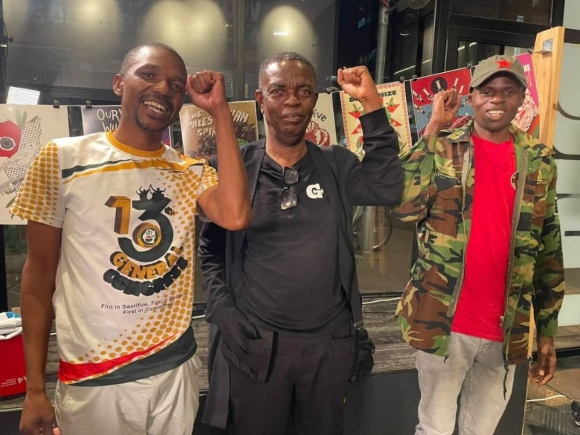More than 3,000 workers, trade unionists, and activists from across Africa are expected to gather in Ghana’s capital, Accra, on Friday, August 29, 2025, to rally for the cancellation of Africa’s ballooning external debt—a burden many argue has deepened underdevelopment and perpetuated poverty across the continent.
The rally is part of a week-long series of events for the African Conference on Debt and Development (AfCoDD), which opened in Accra on August 25 under the theme: “Reparations and Reparative Justice for an African Financial Architecture and Transformation.”
Organisers say the march aims to send a strong signal to both international creditors and African leaders that the cycle of unsustainable loans and unfair credit arrangements must end. For decades, many African countries have spent more on servicing debt than on healthcare, education, or infrastructure, leaving millions trapped in poverty despite the continent’s abundant resources.
This gathering in Accra is therefore more than a protest; it is a historic assertion of agency, turning a long-overdue moral argument into a coordinated legal and political strategy for Africa’s transformation.
This effort follows an “Expert Consultative Meeting” in Johannesburg from August 20–21, 2025, where lawyers, academics, activists, and policymakers from across the continent convened to chart a unified strategy for reparations.
The meeting, convened by the Pan African Lawyers’ Union (PALU) and the Centre for Applied Legal Studies at the University of the Witwatersrand, resolved to seek an Advisory Opinion from the African Court on Human and Peoples’ Rights under Article 4 of the Protocol to the African Charter.
The demand for reparations is anchored in centuries of historical injustice, from the transatlantic slave trade and colonial plunder to neocolonial financial structures that continue to burden African nations. Advocates insist that reparations must go beyond financial compensation to include structural reforms that dismantle global systems of inequality.
Veteran Ghanaian journalist and activist Kwesi Pratt Jnr, a consistent voice in the reparations discourse, stressed at the Johannesburg meeting that no monetary figure could adequately compensate for the atrocities Africans have endured.
“No amount of money can sufficiently compensate for the crimes committed against the African people by capitalist states. What we seek is a complete reset of the world and its institutions to ensure the equality of all peoples and the building of a new world where poverty and all forms of exploitation are banished forever,” he said.
Mr. Pratt, who serves as General Secretary of the Socialist Movement of Ghana (SMG) and a member of the Organising Committee of the Pan-African Progressive Front (PPF), urged African leaders to match their rhetoric with decisive action.
The African Union (AU) has recently intensified its advocacy for reparations, designating former Ghanaian President John Dramani Mahama as its official champion for the cause.
President Mahama has repeatedly condemned the historical exploitation of Africa as “deliberate, coordinated acts of plunder carried out with impunity,” arguing that these injustices continue to shape global inequalities today. His foreword to Kwesi Pratt Jnr’s forthcoming book, Reparations; History, Struggle, Politics and Law, underscores the urgency of reparative justice as central to Africa’s transformation.
The book, which traces the historical foundations and legal battles for reparations, is set to be launched in Accra on September 9, 2025, and is expected to contribute significantly to the global reparations discourse.

